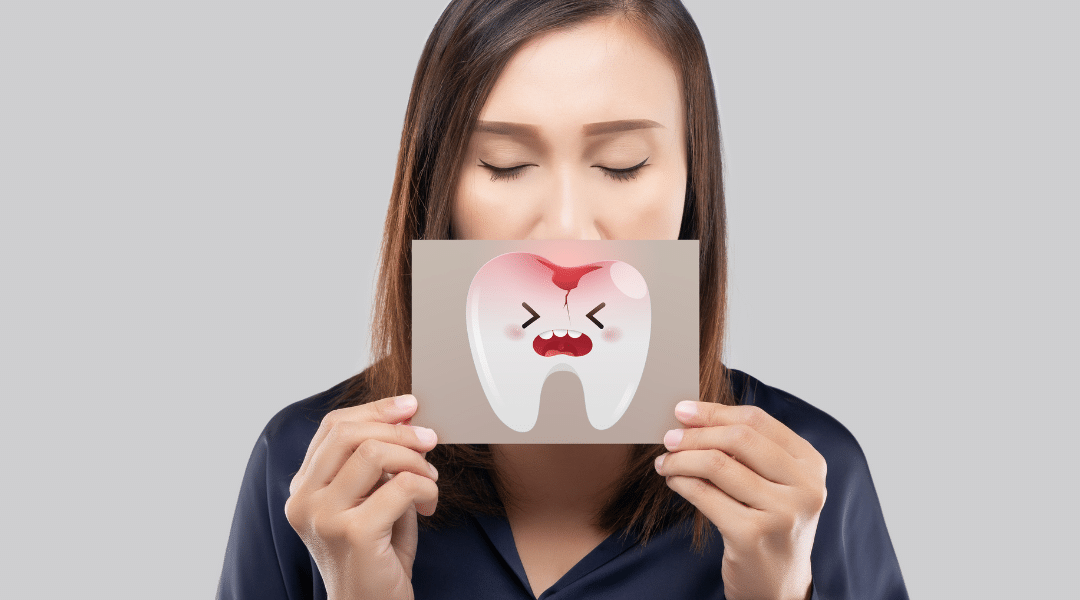Gingivitis is very common; it is an inflammatory reaction to tartar and plaque on the teeth. Your gums can become swollen, irritated, and red if tartar and plaque sit on the teeth too long. The answer to the question: what is gingivitis, is highlighted below, along with treatment and prevention suggestions.
What Is Gingivitis?
Without regular dental cleanings, tartar and plaque can build up on the teeth, causing infection. This early stage of gum disease is called: gingivitis. It can be treated with the help of your dentist; however, it can lead to periodontitis (severe gum disease) if left untreated.

Signs And Symptoms
In the early stages, signs of gingivitis are not always obvious. Overtime as the conditions worsen, you may experience:
- Swollen, Inflamed gums
- Bad Breath
- Food Sensitivity
- Tenderness/Pain When Chewing
- Gums Bleeding Easily
Who Can Get Gingivitis?
Gingivitis and gum disease are more likely to occur in:
- Males
- People living in poverty or are unable to take proper care of their oral health
- People who smoke
Causes
When plaque and tartar build on the teeth, our bodies conduct an inflammatory response. Without proper dental cleaning, this buildup on the tooth’s surface can cause the gums to become irritated, swollen, and red.
There is a higher risk of developing gingivitis if you:
- Are pregnant
- Have bad oral hygiene habits
- Have crooked teeth, since they are harder to clean plaque and tartar can build up quicker
- Have diabetes
- Smoke or chew tobacco
- Have a family history of gum disease

How To Treat Gingivitis
When treating gingivitis, your dentist will aim to restore healthy teeth and gums by controlling the infection. In addition, your teeth will require thorough cleaning to ensure all tartar, plaque, and harmful bacteria are removed. Other treatments include:
- Root planing and scaling: Similar to routine dental cleaning, this procedure removes bacteria and tartar. However, this treatment aims deeper beneath the gums and smooths the teeth’s surface.
- Oral hygiene improvements: Though a dental cleaning will clear the gingivitis, it is essential to maintain proper oral hygiene at home.
- Antimicrobial mouthwash: Your dentist may recommend an antimicrobial mouthwash to help destroy harmful bacteria.
- Dental work: Your dentist may work on other problems in your mouth to ensure the teeth’s surface is smooth and easy to clean; this can include: fillings, crowns, bridges, or others.
Prevention
Maintaining good oral hygiene is the key to preventing gingivitis:
- Brush your teeth twice a day
- Manage diabetes
- Don’t use tobacco products
- Floss daily to remove bacteria in between teeth
- Limit sugar and alcohol intake
- Schedule regular dental checkups
People whose family members have gum disease impose a greater risk of development. This may require more cleaning and checkups for extra prevention.
Maintaining your oral health is essential and is one of the most effective ways to prevent gingivitis. Regular dental checkups can ensure that tartar and plaque are removed from the surface of the teeth. If you are experiencing symptoms of gingivitis or want to schedule a regular cleaning, visit our website to learn more!

